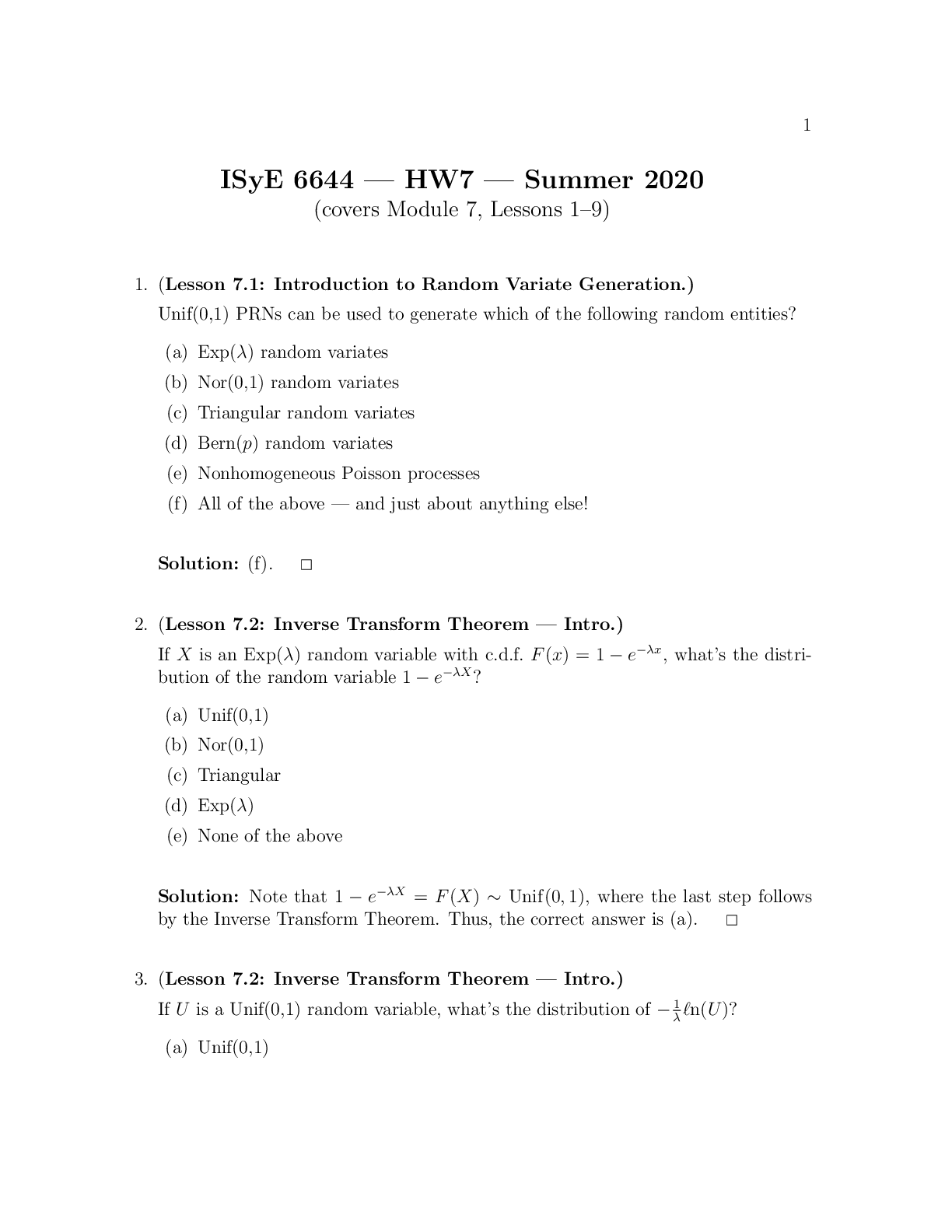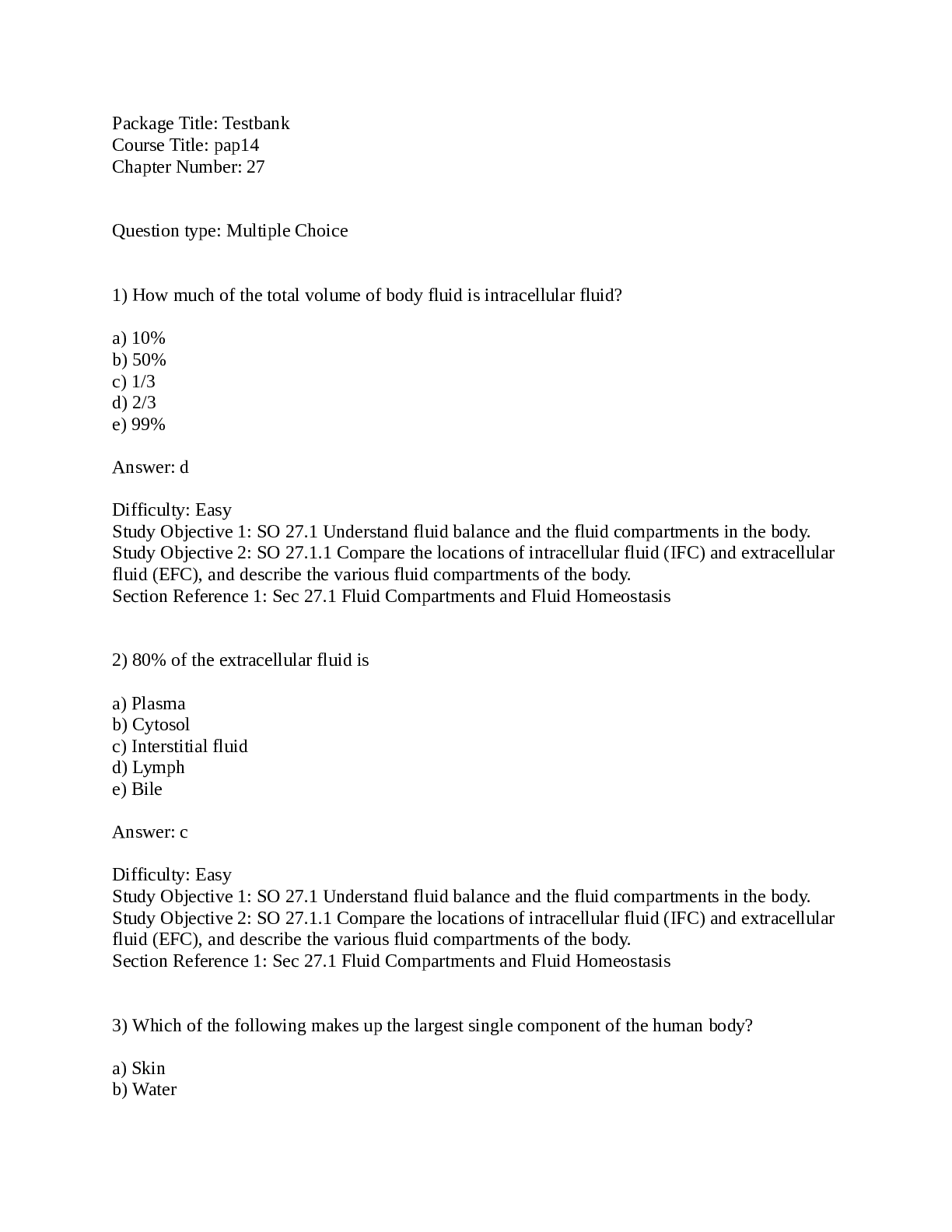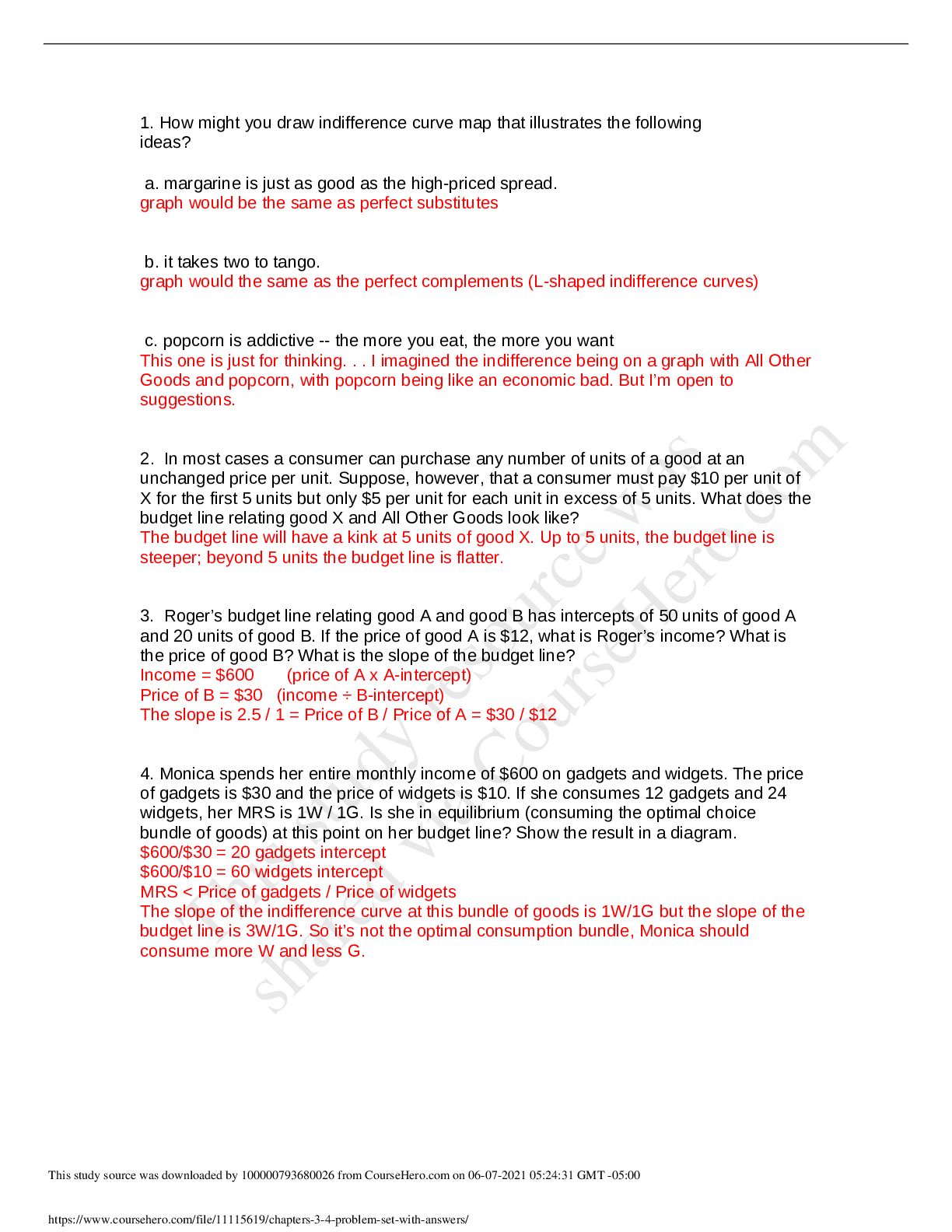Microeconomics > QUESTIONS & ANSWERS > ECON 4351Microeconomics Ch1 & 2 The basics of supply and demand University of Missouri (All)
ECON 4351Microeconomics Ch1 & 2 The basics of supply and demand University of Missouri
Document Content and Description Below
Microeconomics The Basics of Supply and Demand 2.1 Supply and Demand 1) Which of the following is NOT an application of supply and demand analysis? A) Understanding changing world economic conditi... ons and their effects on prices B) Evaluating the effects of government price controls on the agricultural industry C) Determining how taxes affect aggregate consumption spending patterns D) all of the above E) none of the above Answer: E 2) A supply curve reveals: A) the quantity of output consumers are willing to purchase at each possible market price. B) the difference between quantity demanded and quantity supplied at each price. C) the maximum level of output an industry can produce, regardless of price. D) the quantity of output that producers are willing to produce and sell at each possible market price. Answer: D 3) Plastic and steel are substitutes in the production of body panels for certain automobiles. If the price of plastic increases, with other things remaining the same, we would expect: A) the price of steel to fall. B) the demand curve for steel to shift to the right. C) the demand curve for plastic to shift to the left. D) nothing to happen to steel because it is only a substitute for plastic. E) the demand curve for steel to shift to the left. Answer: B 4) Coffee and cream: A) are both luxury goods. B) are complements. C) are both more inelastic in demand in the long run than in the short run. D) have a positive cross price elasticity of demand. Answer: B5) Which of the following would shift the demand curve for new textbooks to the right? A) A fall in the price of paper used in publishing texts B) A fall in the price of equivalent used textbooks C) An increase in the number of students attending college D) A fall in the price of new textbooks. Answer: C 6) When an industry's raw material costs increase, other things remaining the same, A) the supply curve shifts to the left. B) the supply curve shifts to the right. C) output increases regardless of the market price and the supply curve shifts upward. D) output decreases and the market price also decreases. Answer: A 7) Sugar can be refined from sugar beets. When the price of those beets falls, A) the demand curve for sugar would shift right. B) the demand curve for sugar would shift left. C) the supply curve for sugar would shift right. D) the supply curve for sugar would shift left. Answer: C 8) Assume that steak and potatoes are complements. When the price of steak goes up, the demand curve for potatoes: A) shifts to the left. B) shifts to the right. C) remains constant. D) shifts to the right initially and then returns to its original position. Answer: A 9) Which of the following events will cause a leftward shift in the supply curve of gasoline? A) A decrease in the price of gasoline B) An increase in the wage rate of refinery workers C) Decrease in the price of crude oil D) An improvement in oil refining technology E) all of the above Answer: B10) Which of the following will NOT cause a shift in the supply of gasoline? A) An increase in the wage rate of refinery workers B) A decrease in the price of gasoline C) An improvement in oil refining technology D) A decrease in the price of crude oil Answer: B 11) Which of the following would cause a shift to the right of the supply curve for gasoline? I. A large increase in the price of public transportation. II. A large decrease in the price of automobiles. III. A large reduction in the costs of producing gasoline. A) I only B) II only C) III only D) II and III only Answer: C 12) You are analyzing the demand for good X. Which of the following will result in a shift to the right of the demand curve for X? A) A decrease in the price of X B) An increase in the price of a good that is a complement to good X C) An increase in the price of a good that is a substitute for X D) all of the above Answer: C 13) The price of good A goes up. As a result, the demand for good B shifts to the left. From this we can infer that: A) good A is used to produce good B. B) good B is used to produce good A. C) goods A and B are substitutes. D) goods A and B are complements. E) none of the above Answer: D [Show More]
Last updated: 2 years ago
Preview 1 out of 46 pages
.png)
Buy this document to get the full access instantly
Instant Download Access after purchase
Buy NowInstant download
We Accept:

Reviews( 0 )
$14.00
Can't find what you want? Try our AI powered Search
Document information
Connected school, study & course
About the document
Uploaded On
May 31, 2021
Number of pages
46
Written in
Additional information
This document has been written for:
Uploaded
May 31, 2021
Downloads
0
Views
80





















.png)




